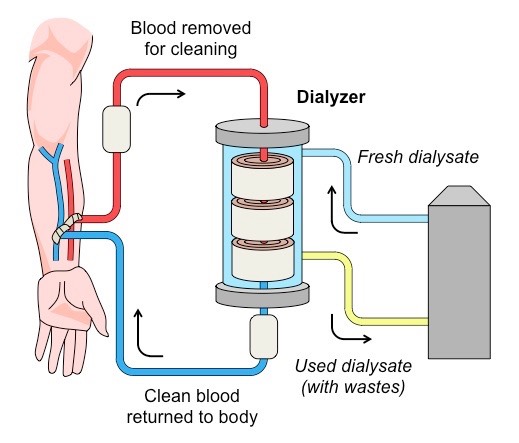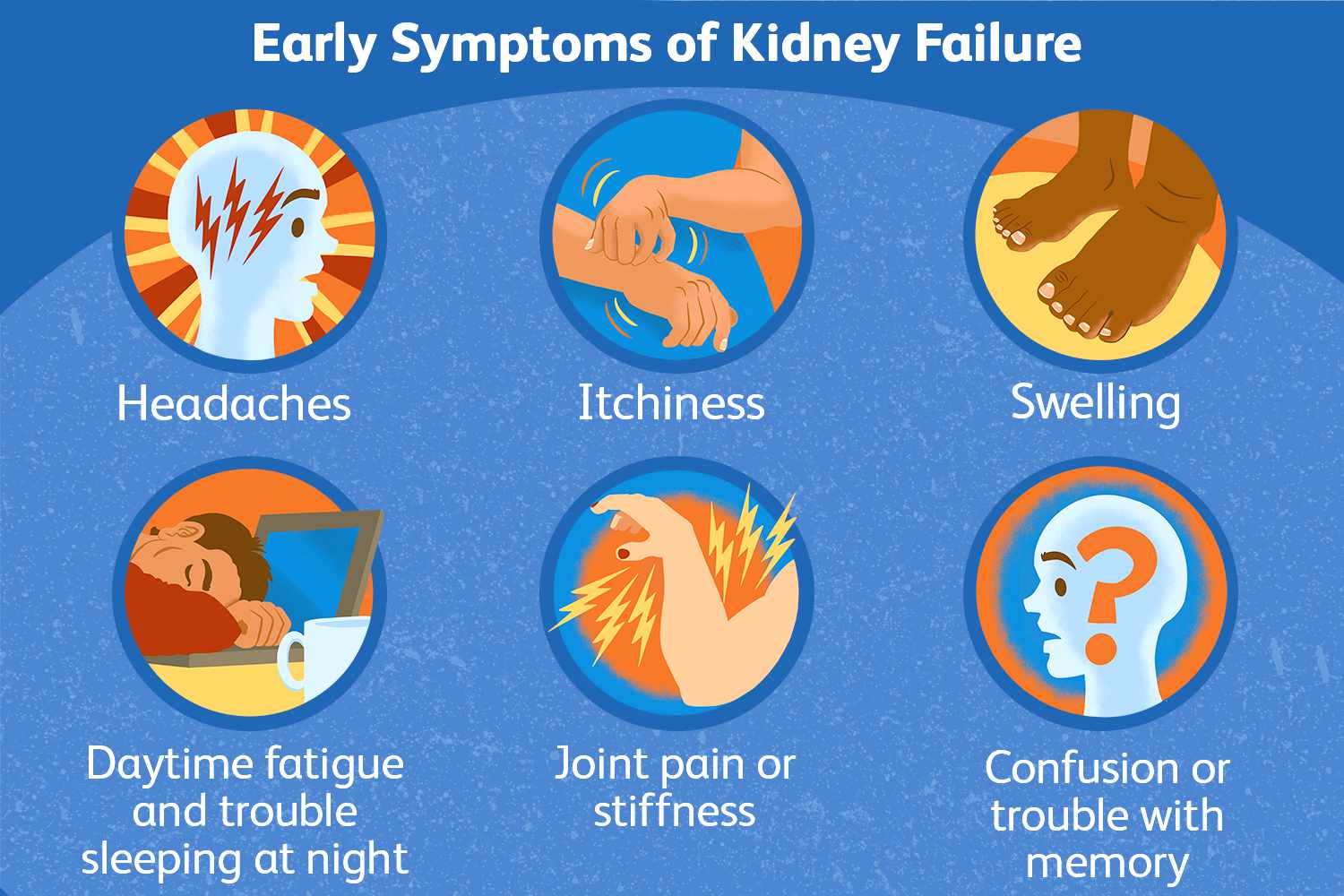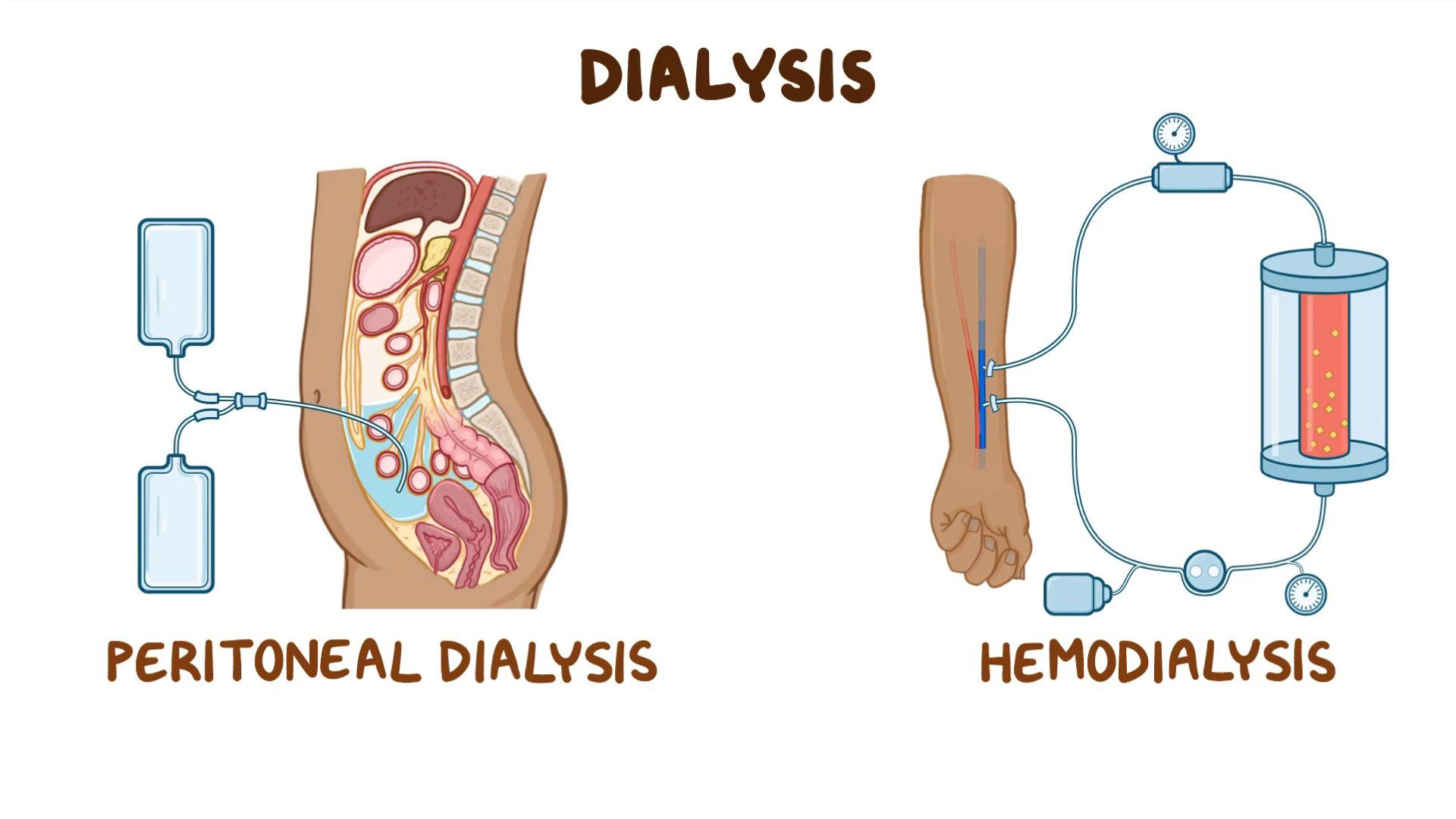What is Kidney Dialysis?
Dialysis is a medical procedure that helps remove excess waste & fluid from the blood when the kidneys are unable to do so. Dialysis treatment is essential for patients with end-stage renal disease or kidney failure.
Here, we will discuss the importance of dialysis, the dialysis AV fistula, permanent tunnelled catheters ‘permacath’ , different types of dialysis related problems, how they can be solved with help interventional procedures & the best kidney dialysis centres in Mumbai.

Early Symptoms of Kidney Failure
Symptoms of kidney failure can vary depending on the stage of kidney disease and the underlying cause. In the early stages, kidney failure may not produce noticeable symptoms.

However, as the condition progresses, the following signs and symptoms may start to manifest:
1-Fatigue and Weakness: Feeling tired and weak, even after getting enough rest, is a common symptom of kidney failure. This occurs due to the buildup of waste products and toxins in the body, leading to decreased red blood cell production (anemia).
2-Decreased Urine Output: A reduction in the amount of urine produced and changes in urine color may occur. Urine may be foamy or bubbly due to the presence of protein.
3-Fluid Retention (Edema): The kidneys may have difficulty eliminating excess fluid, leading to swelling in the legs, ankles, feet, and sometimes around the eyes.
4-Shortness of Breath: Accumulation of fluid in the lungs (pulmonary edema) can cause difficulty breathing and shortness of breath.
5-Persistent Itching: Buildup of waste products in the blood can cause persistent itching, often most noticeable on the skin.
6-Loss of Appetite and Nausea: Kidney failure can lead to a loss of appetite, nausea, and vomiting. Waste products that accumulate in the blood can cause these digestive symptoms.
7-Metallic Taste in Mouth: Some people with kidney failure may experience a metallic taste in their mouth or bad breath due to the buildup of waste products.
8-Muscle Cramps: Electrolyte imbalances and fluid shifts can cause muscle cramps, particularly in the legs.
9-High Blood Pressure: Kidneys play a crucial role in regulating blood pressure, so kidney failure can lead to hypertension (high blood pressure).
10-Changes in Urination: Urination patterns may change, with increased frequency, especially during the night (nocturia), or urgency to urinate.
11-Swelling of Hands and Face: Fluid retention may cause swelling in the hands and face.
Confusion and Trouble Concentrating: As kidney failure progresses, it can affect brain function, leading to confusion, difficulty concentrating, and memory problems.
What are the Types of Kidney Dialysis?
There are two primary types of dialysis: Hemodialysis and Peritoneal Dialysis.

1-Hemodialysis:
- This is one of the most common forms of kidney dialysis treatment in Mumbai.
- During hemodialysis, a machine called a hemodialyzer is used to filter the blood outside the body.
- The patient’s blood is pumped through the hemodialyzer, where waste products and excess fluids are removed, and the clean blood is returned to the body.
- Hemodialysis is usually performed at specialized dialysis centers in Mumbai, under the supervision of trained healthcare professionals.
2-Peritoneal Dialysis:
- Peritoneal dialysis is an alternative method that can be done at home or in a clinical setting.
- In this type of dialysis, a sterile solution called dialysate is introduced into the patient’s abdomen through a catheter.
- The dialysate absorbs waste products and excess fluids from the blood through the peritoneal membrane, and after a few hours, it is drained out along with the accumulated waste.
How Kidney Dialysis Works?
Both hemodialysis and peritoneal dialysis serve the same purpose, which is to remove waste products and excess fluids from the body when the kidneys are unable to do so effectively.
1-Hemodialysis: As the patient’s blood flows through the hemodialyzer, it passes through a semipermeable membrane. On the other side of the membrane, a dialysate solution flows, which helps in filtering out toxins and waste products from the blood.
2-Peritoneal Dialysis: The peritoneal membrane acts as a natural filter, and the dialysate fluid helps in the process of osmosis and diffusion, allowing waste products and excess fluids to move from the blood into the dialysate.
What is Kidney Dialysis Procedure?
1-Hemodialysis Procedure:
- Before the procedure, the healthcare team accesses the patient’s bloodstream through an access point, usually a surgically created arteriovenous fistula or a vascular graft.
- During the dialysis session, the patient is connected to the hemodialysis machine, and the blood is gradually cleaned and returned to the body.
- Hemodialysis sessions usually last for several hours, and the frequency may vary depending on the individual’s condition and doctor’s recommendations.
2-Peritoneal Dialysis Procedure:
- Peritoneal dialysis can be performed manually or with the help of a machine called a cycler.
- In manual peritoneal dialysis, the patient or caregiver introduces the dialysate into the abdomen and drains it out after the prescribed dwell time.
- With the cycler, automated exchanges are performed while the patient sleeps, providing greater convenience and flexibility.
What is the importance of dialysis?
As the kidneys begin to fail & loose their function, all of these important tasks necessary to sustain a healthy life need to be supported by performing dialysis.
A kidney transplant would be ideal to replace the failed kidneys, but may not be possible in all patients for various reasons.
Dialysis treatment helps remove waste & excess fluid from the blood stream, reducing the risk of complications such as fluid overload & electrolyte imbalances. It can help control high blood pressure, which is a common complication of kidney failure.
It also helps to improve the overall health & well-being, reducing the risk of complications such as anaemia, bone disease & malnutrition.
What are thethe Side Effects of Kidney Dialysis?
While dialysis is a life-saving treatment, it may also come with some side effects, including:
- Low blood pressure
- Muscle cramps
- Itching and skin problems
- Anemia
- Fatigue and weakness
It’s essential to communicate any discomfort or side effects to the medical team to ensure timely adjustments to the treatment plan.
Role of Dialysis AV fistula
As patients with renal failure require dialysis on a regular basis, it is important to have a safely accessible site. Surgical creation of AV fistula is routinely done in the forearm, arm for providing accessible site for routine dialysis.
Dialysis AV fistula may develop Problems
Dialysis AV fistula literally functions as the ‘life line’ for patients with kidney failure. These fistula are, however, prone to various problems that may create problems with dialysis.
Occasionally, the AV fistula may develop narrowing or can get blocked from clot formation. In these situations, performing dialysis from these becomes difficult or even fails.
There can also be narrowing along the vein which drains the fistula making blood flow across them difficult. Depending on the level of narrowing, these patients may experience swelling & tightness in their face, neck, chest or arms.
Interventional Treatment for Failing or Failed Dialysis Fistula
Once the dialysis AV fistula develops problem, it may hamper dialysis & pose significant medical risks on the health of patient.
All attempts should be made to preserve a previously functional AV fistula before considering creating a new one. There are only limited sites that can be used for fistula creation & there is a possibility of the new fistula failing as well.
Interventional Radiology treatment plays an important role in addressing these issues. Interventional treatments allows preservation, revival of these failing or recently thrombosed (blocked) fistula.
Thrombolysis & Angioplasty of the AV fistula (Fistuloplasty), the draining & central veins (Venoplasty) are performed by Interventional Radiologist like Dr. Amit Sahu.
These procedures allow to clear the clots & correct any narrowing that may affect blood flow, thereby, making the AV fistula functional for dialysis again.
The earlier these problems are picked up & treated, the better is overall outcome.
Other Interventional Treatments Related to Kidneys
Renal Artery Stenosis (RAS)
Patients may have narrowing in the arteries supplying blood to kidneys. As a result of which these patients may develop high blood pressure, a deterioration of kidney function, fluid build up in the body & occasionally heart failure.
Usually, these patients require lifestyle modifications (like limiting salt intake, following healthy diet & regular physical activity) & medications to control blood pressure.
In selected patients, interventional treatment with renal artery angioplasty & stenting is performed by an interventional radiologist like Dr. Amit Sahu to improve blood flow to the kidney.
In Renal angioplasty & Stenting, an interventional radiologist inserts a ‘wire like’ catheter through an artery in the groin or wrist & threads it to the involved kidney.
Subsequently, special balloon, stents are used to dilate & keep these arteries open to improve blood flow. It is a minimally invasive ‘non-surgical’ procedure.
Interventional Treatment in Renal Transplant
Following a renal transplant, patient may develop various issues which may require interventional treatment.
- Urinary Blockage or Urine Leaks: PCN, DJ Stenting
- Arterial Stenosis, Thrombosis: Thrombolysis, Angioplasty & Stenting
- Venous Thrombosis: Thrombolysis, Angioplasty
- Collections around the kidney: Drainage tube insertion
- Suspected to have rejection of transplant: Biopsy of the kidney
Urinary Drainage Procedures
Procedure like PCN (Percutaneous Nephrostomy) & DJ (Double-J) Stenting are performed by Interventional Radiologist to allow urinary drainage in patients who have obstruction to urinary flow (from stones, tumors or due to narrowing) or have urinary leak due to injury.
These are usually performed as a day-care procedure, depending on general condition of the patient.
Renal Biopsy
In patients with renal dysfunction, usually a tissue sample is needed to confirm the cause. Biopsy procedure allows to collect small sample of renal tissue for the microscopic examination.
Routine percutaneous renal biopsy & transjugular renal biopsy is performed in patients with high bleeding risk by Dr. Amit Sahu.
Benefits of Kidney Dialysis Treatment
Interventional treatment for continued dialysis is critical in patients with renal failure. Interventional Radiology treatments allow to maintain & preserve the dialysis AV fistula for a longer duration.
Interventional procedures can also help provide alternate access for dialysis in situations where fistula is not favourable for dialysis by placing permanent tunnelled catheter (‘permacath’) or abdominal peritoneal dialysis catheter.
Best Kidney Dialysis Treatment in Mumbai
Dr. Amit Sahu works with some of the best kidney dialysis treatment centres in Mumbai in close collaboration with nephrologist, urologist, renal transplant surgeon, urosurgeon.
Dr. Amit Sahu and his team use the latest techniques and technologies to deliver personalised treatment plans that are tailored to each patient’s unique needs.
Conclusion:
Kidney dialysis treatment is an essential medical procedure for patients with end-stage renal disease or kidney failure.
India has some of the best kidney dialysis centres in Mumbai, equipped with state-of-the-art technology & highly trained medical professionals.
If you or a loved one requires kidney dialysis treatment & are facing problems with dialysis AV fistula or are in need for permacath placement seek opinion from Dr. Amit Sahu, amongst one of the best interventional radiologist in Mumbai.
He collaborates with some of the best kidney dialysis centres in Mumbai & is highly experienced in all interventional procedures relating to dialysis & other kidney pathologies.
Dr. Amit Sahu is known for his patient-centric approach, personalised treatment plans & commitment to delivering the highest quality care.
His expertise & compassionate care have helped many patients in Mumbai lead better & healthier lives despite kidney failure.